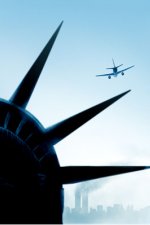 The TLS (NB, September 29) has weighed in on my recent anthology for nthposition, Babylon Burning: 9/11 five years after.
The TLS (NB, September 29) has weighed in on my recent anthology for nthposition, Babylon Burning: 9/11 five years after.The commentary opens: "We are puzzled by the notion, current since the attacks on New York and Washington in September 2001, that people resort to poetry in times of emotional distress. Poets and others of sound mind have suggested this as evidence of poetry's continuing 'relevance'. What happened to reading poetry for pleasure? Nothing could be more relevant than that."
J.C. at NB then goes on to excerpt poems from Joe Ross, Tony Lewis-Jones, Pauline Michel (Canada's poet laureate), Ken Edwards and bill blissett [sic]. I am also described as "Mr Swift, a kindly fellow" for my suggestion to donate to the Red Cross.
It seems an odd approach, both mildly humorous but also quizzical.
Surely the idea that poetry is chiefly intended to give "pleasure" is old hat? Or rather, given that poetry is a complex art form that operates on the same level, as, say, drama, the novel form, or cinema, it is hard to conclude it does not have more than one function, or effect. Is it meaningful to say that King Lear is "for pleasure"? United 93? That In Cold Blood is? What about The Duino Elegies?
Tragedy, and other challenging work, that confronts the human condition, can give great aesthetic satisfaction without ever failing to also operate on a very solemn stage.
Poetry can do more than provide mild, jaunty verses to amuse - it can also provoke and offer inquiry; it can threaten to change one's life. The poems in Babylon Burning seek to use the full palette that literary art offers to approach one of recent history's major turning points. This hardly seems a questionable activity.
Poetry can do more than provide mild, jaunty verses to amuse - it can also provoke and offer inquiry; it can threaten to change one's life. The poems in Babylon Burning seek to use the full palette that literary art offers to approach one of recent history's major turning points. This hardly seems a questionable activity.
In fact, it almsot seems necessary.
Comments